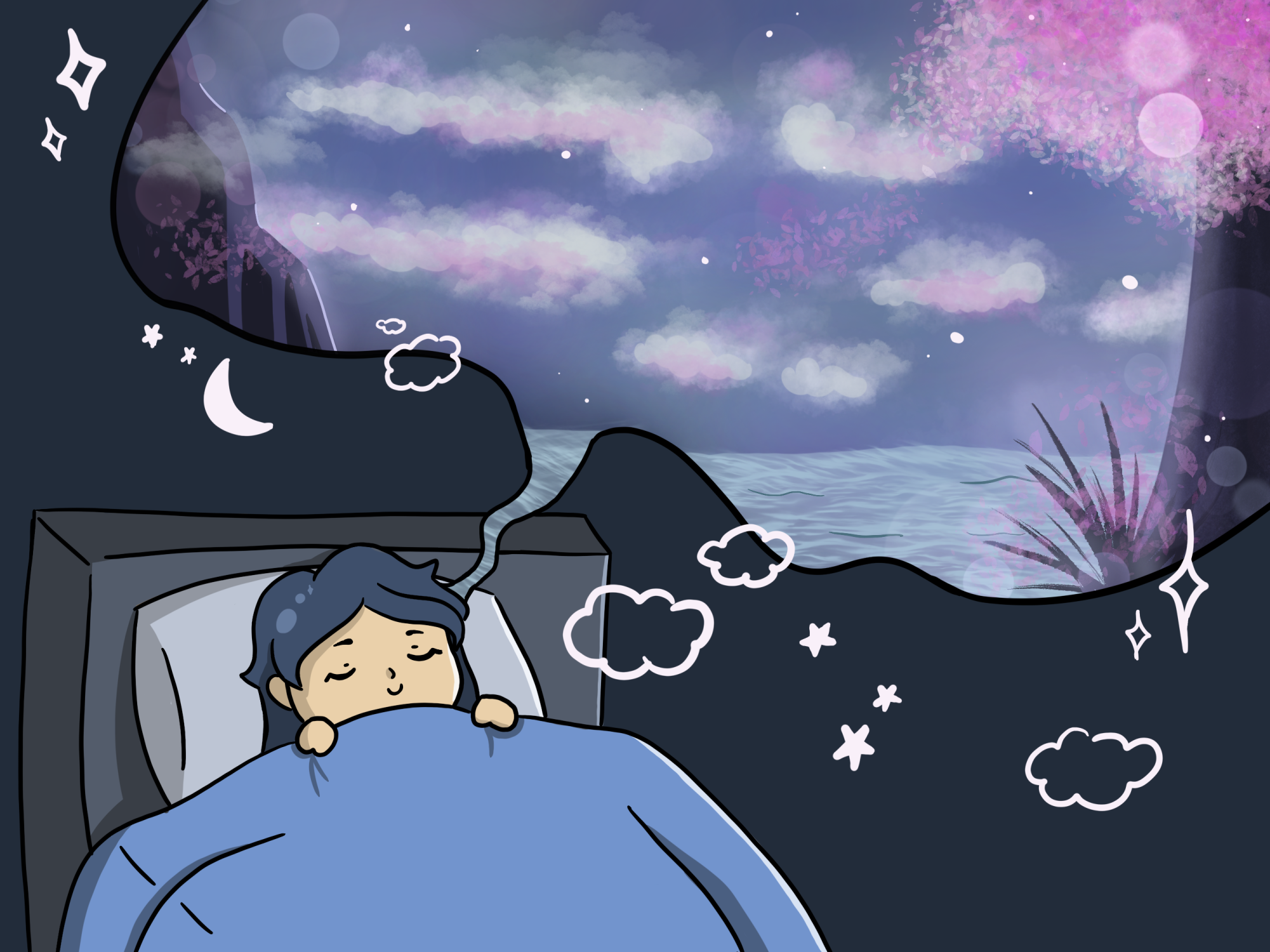I once dreamt that a cannibal kidnapped my dad. Another time, I was flying through my elementary school campus on Harry Potter’s broomstick, whooping at the top of my lungs. You can imagine my disappointment upon waking up.
Dreams are a strange phenomenon. Our minds craft mystifying stories and bizarre images as we snooze throughout the night. Studies indicate that these puzzling experiences contribute to memory formulation and may even have healing qualities.
Dreams are one of the most bewildering aspects of the human experience. The National Library of Medicine contends that dreams can reveal hidden desires and help us process what happens throughout our day. They can also boost mental health by assisting in overcoming problems and promoting happiness.
Researchers estimate that most people dream three to six times a night for five to twenty minutes each. These numbers may seem unrealistically high, but this is simply because we tend to forget our dreams as soon as we wake up. According to Medical News Today, approximately 95% of dreams are forgotten once we return to a conscious state. Most of our dreams occur during rapid eye movement, or the REM stage of the sleep cycle. Short-term memory areas are activated during this period, but these regions retain memories for no longer than 30 seconds. Unless one wakes up during REM, the dream will not enter our long-term memory compartment.
The Journal of Sleep Research dives into characters often seen in dreams, with 48% representing a known individual, 35% embodying a particular social role (e.g. a police officer) and 16% being unknown to the dreamer.
When people we know appear in our dreams, our minds respond with affection and joy, even if we don’t like that person IRL. For example, seeing your worst enemy in a dream will prompt a positive cognitive response despite your negative opinion of them.
Dreams can fall under various categories, including nightmares and lucid dreams.
Most of us are familiar with nightmares, the disturbing scenes that bring about panic and anxiety in our sleep. Healthline cites a study that found the most common nightmares include death or injury to loved ones, followed by feelings of failure or helplessness. Death, physical harm, major accidents and being chased have also been identified among the most common nightmares. Additionally, stress, fear, trauma and the consumption of certain drugs can all contribute to horrifying nighttime images.
In my experience, school-related stress increases the vividness of my nightmares. During my middle school exam season, I dreamed about a colossal bumblebee that was determined to sting my face.
Another time, I had a dream about falling into a dark abyss before taking an English test.
Lucid dreams are another fascinating subject. In lucid dreams, an individual is aware that they’re dreaming and can assert some control over the dream. Some experience lucid dreaming spontaneously, while others can increase their influence over the dream. The thoughts that race through our minds before we sleep can potentially affect what we dream about. I suppose that explains why I often dream about exams after studying late into the night.
The Joker starred in one of my most memorable lucid dreams. He was chasing me through a vast field with brightly colored circus flags billowing around the scene. Despite the fear and panic I felt, my subconscious understood that it was a false reality.
Dreams are unique to the experiences and emotions of each person. Even so, researchers have discovered some commonly shared dreams and have analyzed their potentially deeper implications.
Take my lucid dream about being chased by Joker. Though you may not know who or what is pursuing you, being chased is not unordinary in the dream world. This may indicate that you wish to avoid something in your life, or that you seek an escape from fears or unwelcome desires.
Another typical subject in dreams is the sensation of falling. This typically stems from anxiety, suggesting that events in your life are not playing out as you wish. From struggling in school to failing in a relationship, dreams about falling tend to express your fears or insecurities. While experiencing family drama, I dreamt about falling off a roller coaster, demonstrating my anxiety surrounding the disputes between my family members.
Out of all the common dreams, flying dreams are especially exhilarating. My dream about flying through my elementary school on Harry Potter’s broomstick remains my all-time favorite. Flying can indicate feelings of freedom or power. Perhaps you’ve just conquered an important job interview or another major obstacle in your life. Additionally, confidence and independence are associated with flying alone in dreams.
Despite the substantial research conducted, science has failed to fully discover and articulate the magic of dreams. Extraordinary and bizarre, the world of dreams is filled with scenes that speak to the individual. Whether it be visions of meeting celebrities or eating food, dreams have captivated humanity for ages and continue to puzzle us with their elusive nature.




